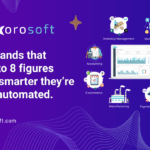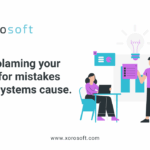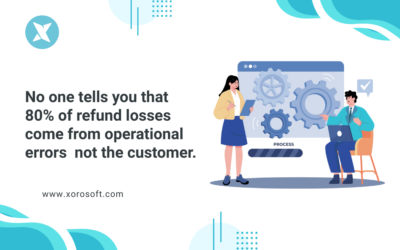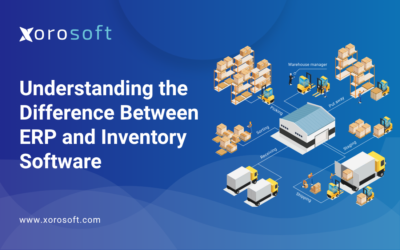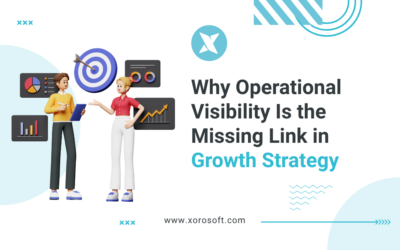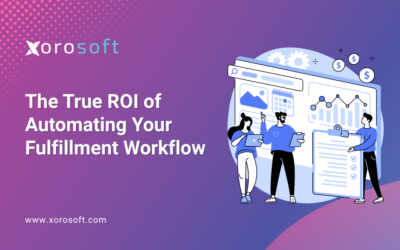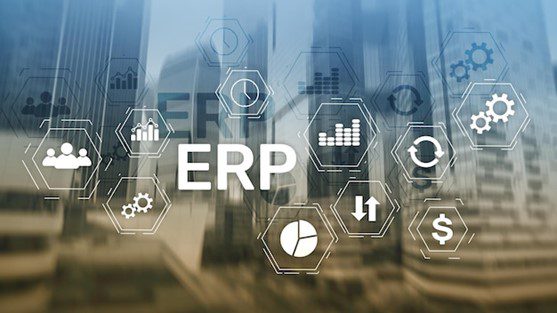
Introduction to ERP Systems and Their Importance
As businesses continue to evolve and grow, the need for efficient and integrated systems becomes crucial. Enterprise Resource Planning (ERP) systems have emerged as a powerful solution to streamline business processes, optimize operations, and enhance productivity. An ERP system integrates various functions such as inventory management, accounting, human resources, and customer relationship management into a single platform, providing real-time visibility and control over business operations.
The importance of ERP systems cannot be overstated. They serve as the backbone of organizations by centralizing data, automating processes, and generating valuable insights for informed decision-making. With such critical data residing within ERP systems, it becomes imperative to ensure their protection against cyber threats. In this article, I will discuss the best practices for securing your ERP system and safeguarding your valuable business data.
Understanding the Potential Cyber Threats to ERP Systems
Before diving into the best practices, it is vital to understand the potential cyber threats that ERP systems face. Cybercriminals are constantly evolving their tactics to exploit vulnerabilities and gain unauthorized access to sensitive data. Some common cyber threats to ERP systems include:
- Data breaches: Attackers target ERP systems to steal sensitive information such as customer data, financial records, and intellectual property.
- Ransomware: Malicious software encrypts data within the ERP system, rendering it inaccessible until a ransom is paid.
- Phishing and social engineering: Cybercriminals use deceptive tactics to trick employees into revealing sensitive information or granting unauthorized access to the ERP system.
- Malware and viruses: Malicious software can infiltrate ERP systems, causing data corruption, system disruption, and unauthorized data exfiltration.
- Insider threats: Internal employees with legitimate access to the ERP system may misuse their privileges or unintentionally expose sensitive data.
Understanding these potential threats is crucial for implementing effective security measures to protect your ERP system from unauthorized access and data breaches.
Common Vulnerabilities in ERP Systems
To effectively secure your ERP system, it is important to be aware of the common vulnerabilities that cybercriminals exploit. Some of the common vulnerabilities include:
- Outdated software and lack of updates: Running outdated ERP software increases the risk of known vulnerabilities being exploited. Regular software updates and patch management are essential to address security vulnerabilities.
- Weak access controls and user management: Insufficient access controls and weak user management practices can lead to unauthorized access and potential data breaches. Implementing strong access controls, user authentication, and role-based permissions is crucial.
- Third-party integrations and add-ons: Integrating third-party applications and add-ons with your ERP system may introduce security risks. Ensuring that these integrations are secure and regularly updated is essential.
By understanding these vulnerabilities, you can take proactive steps to mitigate the risks and enhance the security of your ERP system.
Best Practices for Securing Your ERP System
Now that we have discussed the importance of ERP systems and the potential threats and vulnerabilities they face, let’s dive into the best practices for securing your ERP system.
Importance of Regular System Updates and Patch Management
Regular system updates and patch management play a crucial role in maintaining the security of your ERP system. Software vendors often release updates and patches to address security vulnerabilities and enhance system functionality. It is essential to stay up-to-date with these updates and apply them promptly. Establish a robust update and patch management process to ensure that your ERP system is protected against the latest threats.
Implementing Strong Access Controls and User Management
Strong access controls and user management are vital for protecting your ERP system from unauthorized access and data breaches. Implement multi-factor authentication to strengthen user verification. Enforce strong password policies, including regular password changes and complexity requirements. Additionally, utilize role-based access controls to grant permissions based on job roles and responsibilities, limiting access to sensitive data and functionalities.
Choosing a Reliable and Secure ERP Solution Provider
Selecting a reliable and secure ERP solution provider is critical for safeguarding your data. Conduct thorough research and due diligence before choosing an ERP vendor. Ensure that the vendor follows industry best practices for security, regularly updates their software, and has a track record of providing robust security features. Consider partnering with a reputable provider like Xorosoft ERP, known for their commitment to data security and integrity.
Protecting Your ERP System from Phishing and Social Engineering Attacks
Phishing and social engineering attacks continue to be a significant threat to ERP systems. Educate your employees about these types of attacks and provide training on identifying suspicious emails, links, and attachments. Implement email filters to block known phishing attempts. Regularly remind your employees about the importance of not sharing sensitive information or credentials over emails or phone calls.
Importance of Data Encryption and Backup Solutions
Data encryption and backup solutions are essential components of a comprehensive ERP system security strategy. Encrypting sensitive data ensures that even if unauthorized access occurs, the data remains protected. Regularly back up your ERP system data to an off-site location to mitigate the risk of data loss due to hardware failures, cyber attacks, or natural disasters. Test the data restoration process periodically to ensure its effectiveness.
Monitoring and Detecting Suspicious Activities in Your ERP System
Implement a robust monitoring system to detect and respond to suspicious activities within your ERP system. Utilize intrusion detection and prevention systems to identify potential threats. Monitor user activities, system logs, and network traffic for any anomalies. Establish real-time alerts and notifications for any suspicious behavior, enabling you to take immediate action.
Conducting Regular Security Audits and Assessments
Regular security audits and assessments are essential to evaluate the effectiveness of your ERP system security measures. Conduct internal and external audits to identify potential vulnerabilities and ensure compliance with industry standards and regulations. Engage third-party security experts to perform penetration testing and vulnerability assessments to identify potential weaknesses.
Training Your Employees on Cybersecurity Best Practices
Human error is often the weakest link in cybersecurity. Provide comprehensive training to your employees on cybersecurity best practices. Educate them on password hygiene, safe browsing habits, and the risks associated with sharing sensitive information. Conduct regular cybersecurity awareness sessions to reinforce the importance of data security and to keep employees informed about the latest threats and preventive measures.
Case Study: How Xorosoft ERP Ensures Data Security
Xorosoft ERP is a leading provider of secure and reliable ERP solutions. Their robust security features and commitment to data integrity make them an ideal choice for businesses looking to protect their ERP systems. Xorosoft ERP incorporates industry-leading encryption technologies, multi-factor authentication, and granular access controls to safeguard sensitive data. Regular software updates and patches ensure that the system is protected against emerging threats. Xorosoft ERP also conducts regular security audits and assessments to maintain the highest standards of security.
Conclusion: Taking Proactive Steps to Protect Your ERP System
Securing your ERP system is a critical aspect of protecting your business data from cyber threats. By implementing the best practices discussed in this article, such as regular system updates, strong access controls, and user management, choosing a reliable ERP solution provider, protecting against phishing attacks, data encryption, and backup solutions, monitoring for suspicious activities, conducting regular security audits, and training your employees on cybersecurity best practices, you can mitigate the risks and ensure the security of your ERP system.
Take proactive steps to secure your ERP system today and safeguard your valuable business data. Book a demo with Xorosoft to explore their secure and reliable ERP solution.
